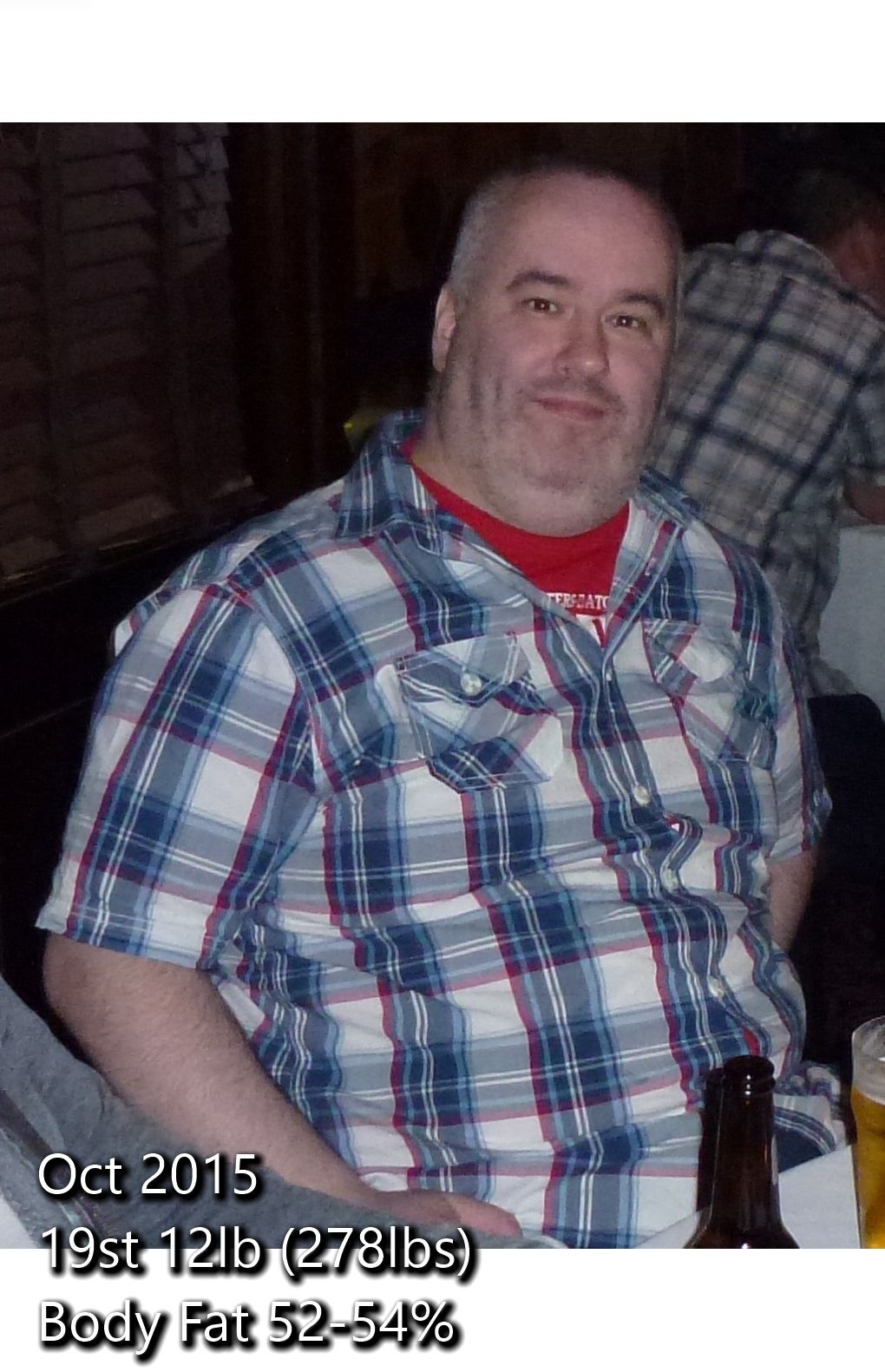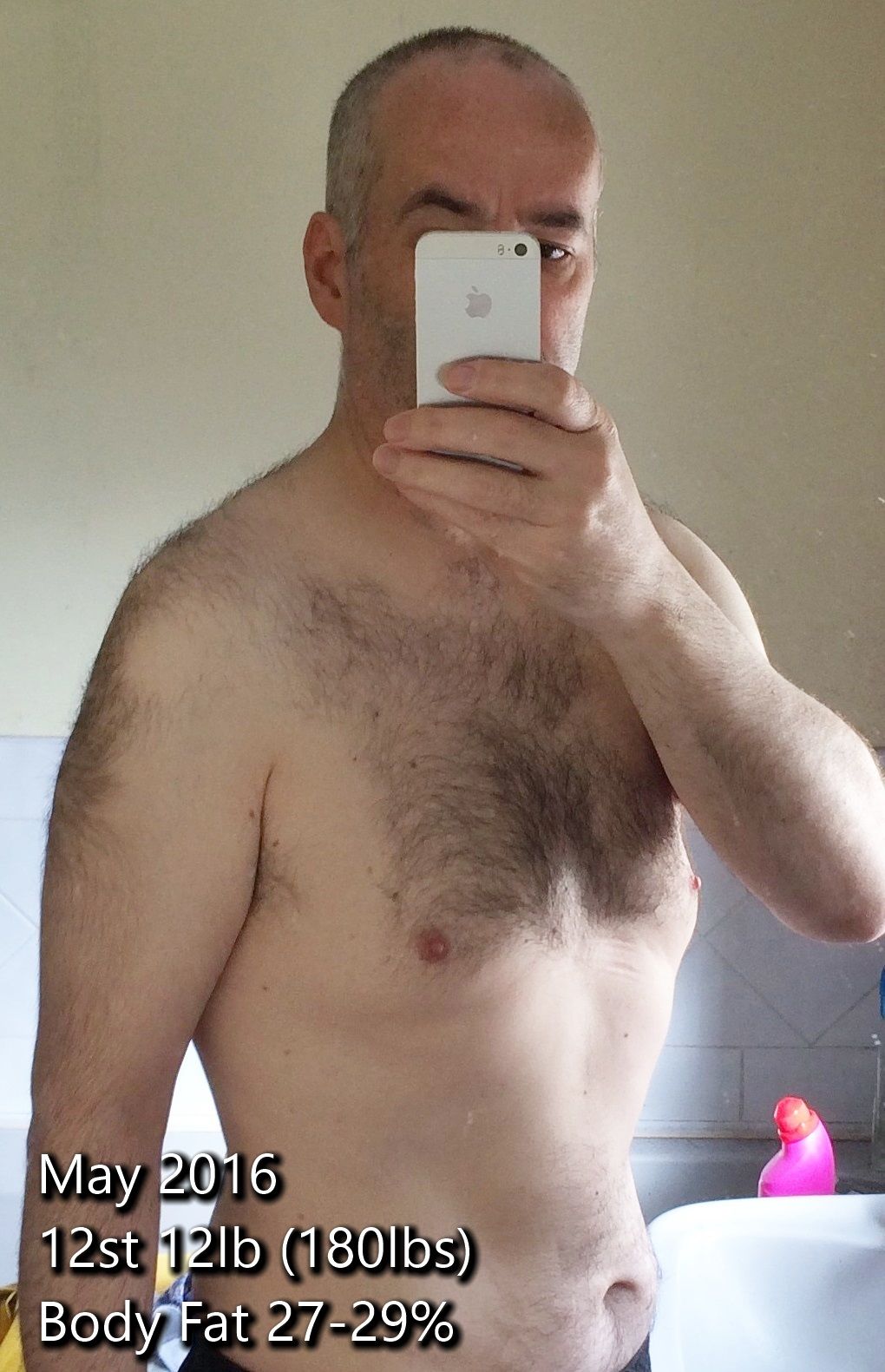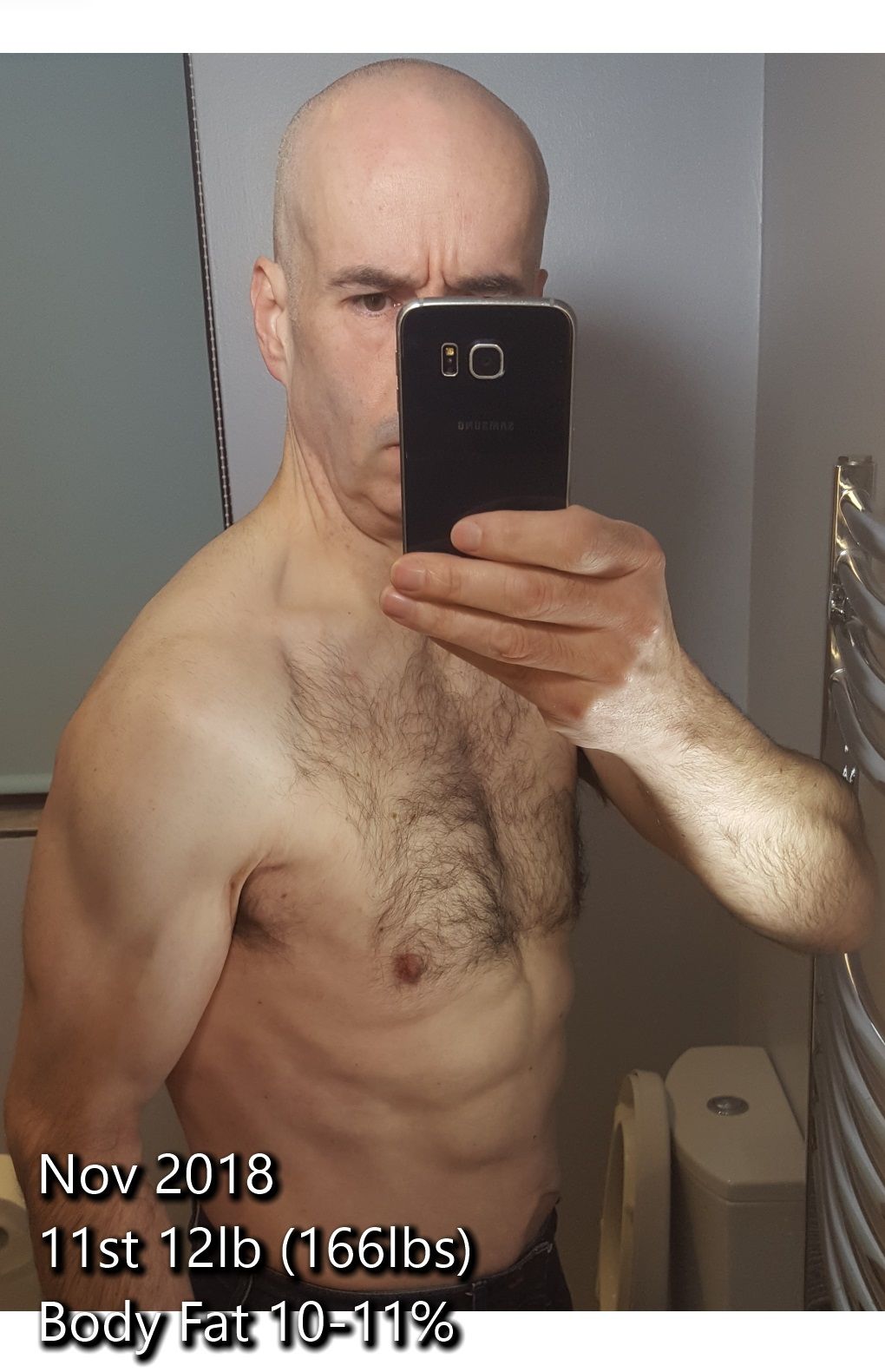New Year, New Diet?
Lifestyle vs Diet
I'm not a fan of the term "diet" due to the temporal nature of the word. If you're in a position where you require weight loss, then a lifestyle change that's more permanent than a diet is likely more appropriate, to avoid the inevitable weight regain that happens for 90% of people who diet. Also, taking a lifestyle approach to weight loss can take the clock out of the situation. There's no looking forward for the diet to be "over", and there's no implied rush to get through it. If this is from now and forever, then that patience can allow for more strategies for success. There's no cheat meals/days, these are just small spikes in a years-long timeline that through a big picture lens amount to nothing more than statistical noise. When you don't beat yourself up for being "bad", or when the bathroom scales tell you something you don't want to hear, and you know you've time on your hands to make up for these discrepancies, then you're less likely to quit.
Calories, not Macros or Body Hacks or Anything Else
Most people have a target weight in mind. That weight is a function of the calories consumed from food and drink, along with the calories expended via daily activities and exercise. Regardless of your starting weight, if you live your life to the values of that equation, you will eventually arrive at that weight. Weight loss will be on a curve, with more rapid loss the further from the target that slows as you get closer.
Calories get a bad press sometimes, and people will try all types of tricks to avoid counting them, but it still all boils down to the energy balance defined by them. Extreme diets, such as those that avoid whole macro groups will work if they inadvertently create a calorie deficit. For example, avoiding carbs because of the insulin spike (while conspicuously ignoring the spike caused by protein 🤔) could lead to creating a deficit, and is not "hacking" your metabolism, and is still based on energy balance defined by calories.
Avoiding sugar because it "causes cancer", or demonising zero calorie drinks are further examples of the misinformation that's prevalent in the fitness industry. The human body is a marvel. Right now as you read this, it's detoxing - no need for green tea or apple cider vinegar, your kidneys and liver are doing the jobs that they are built to do, and exceptionaly good at, which is allowing you to healthly eat all types of foods.
Poison is defined by the dose. Although essential for life, drinking too much water will kill you. Taking a small amount of arsenic will allow you to build a tolerance for it. Sugar, complex carbs, alcohol etc. can be part of any healthy diet, when consumed in moderation. They are just foods and aren't inherently evil, but these foods can be hyper palatable with minimal nutritional benefits, so getting a healthy balance of micro-nutrients alongside these foods, can lead to being in a calorie surplus and fat gain. But, if kept in check you can loose weight eating nothing but these foods with the caveat that you're not getting the micro-nutrients that you should.
Weight Loss != Fat Loss
Weight loss is typically measured by standing on a set of bathroom scales. That weight comprises not only fat, but also other variables that are impacted by dieting, such as lean mass and water that's being retained. For each gram of carbs that end up being stored as glycogen, another 3 grams of water are stored with it (another reason low-carb diets gain traction as this process is minimized, giving the false impression of superior fat-loss). Salt intake will also drive water retention.
So, standing on the bathroom scales does not tell the whole story. In fact, to get the bathroom scales to accurately measure fat-loss alone, would likely require eating the same foods at the same time every day, drinking the same amount of liquids at the same time every day, performing the exact same daily activities every day, sleeping the same time every day, and going to the toilet the same every day. Otherwise, there's just too many variables in play to say that the differences in todays reading from yesterdays was down to fat loss or gain.
When looking at 1lb (454g) of fat-loss a week, that's only just 2.3oz (65g) a day, so such a small difference is almost impossible to track accurately. Use bathroom scales as a tool, and not as some all knowing deity that makes or breaks your fat-loss journey. Best to use them at the same time of day like first thing in the morning after going to the toilet, and then averaging the scores over the week - or, just weigh yourself once a month and avoid all the daily fluctuations.
When starting a diet, the general recommendation is to calculate your current Total Daily Energy Expenditure (TDEE), and pick a deficit from there. One pound of body fat roughly equates to 3500 calories, so to meet that in a week requires a daily deficit of 500kcal. This can make people set a deficit that's too large to sustain, in the pursuit of faster weight loss.
I've been guilty of this in the past. I lost 7st (98lbs) in 7 months (below photos: left to middle). That's a daily deficit of 1750kcal - that is a stupid amount, and resulted in me loosing not only fat but also lean mass (muscle) too.
This muscle loss actually worked out as it led me to strength training, and a better understanding of nutrition. The 2.5yrs following my inital weight loss, saw another 32lbs of fat loss (bringing my overall total up to 130lbs) along with a gain of 18lbs of lean mass, for a bodyweight loss of 14lbs in this phase, but with a significant change in composition (below photos: middle to right).
This is when I began to really understand the difference between a lifestyle and a diet, as this was a much more studied approach that didn't have some arbitrary time scale applied to it. It was just a healthier way of living, with the results coming in their own time - regular nights out and weekends away with the wife were had and integrated smoothly in this lifestyle.



In the time since, I've been more focused on getting stronger at the sake of being leaner. Yeah, was kinda neat having visible abs for the first time in my life in my mid-40s, but my strength levels weren't satisfactory to me. Due to the training methods employed at the time, this required a calorie surplus and I've gained around 40lbs in total weight eating through some strength plateaus, with 1/3rd of that gain likely lean mass. Having achieved some strength goals and now with a changed training approach that's not dependant on a calorie surplus, I'm looking at getting leaner. But, by understanding and controlling the process, bulking or getting lean are simply tweaked variables of the same lifestyle.
Calculating Your Calories
Instead of using a TDEE based solely on your current weight, then I suggest also including your target weight. This will give you an idea of what's required to maintain this weight when achieved.
To better calculate your TDEE, body composition should be taken into consideration. Most body fat measuring devices are wholly inaccurate, so I'd ignore anything your bathroom scales or fitness watch is telling you. Unless you've access to a DEXA scanner, then using a statistical calculator is probably your best bet: https://www.fitmatic.com/body/calculator/body-composition-calculator
This calculator provides options for both men and women. Men only require two measurements, one on the narrowest point on your neck, and the other your abdomen (i.e. belly button). Women need to take three measurements, on your hip, waist and neck. This will calculate the body fat percentage using a number of different algorithms - I'd take the average of them all as a starting point. This tape measure is cheap and easy to use.
Then, plug the values into this TDEE calculator: https://tdeecalculator.net/
I strength train 3 or 4 times a week and briskly walk 3 miles on non-lifting days, so I'd go for the "Moderate" activity level, as it's better to err on the low side. Remember to do this for both your current stats and your target stats. Between the two TDEE figures pick a daily deficit that feels comfortable - so, for 1lb of fat loss per week, take 500 away from this value. If that seems too low, try a 350 deficit, or conversely a 750 deficit if happy going lower still. That daily deficit x7 is your weekly target and calorie-cycling is a option for spending this budget.
Combating Hunger
Whatever target calorie figure you arrive at, it's critical to mitigate hunger as that can sabotage your efforts if not controlled. The problem with hunger is that it's a complex process, including psychological, physical, environmental and social factors, with no single off-switch.
A strategy that has worked well for me, is dividing up my daily calories into equal slots for the number of meals I have, which is typically 3. So, for a 1800kcal allowance that's 3 meals of 600kcal. I prefer to keep all the meals similar in this fashion, so the expectation is the same for each meal.
Instead of focusing solely on calories, pair this with the weight of the food, using the weight as a surrogate for the volume that'll be used to fill that 3-dimensonal sack known as the stomach.
For me, 6 to 7lbs of daily food will make me feel "full" and keep hunger at bay, so that means having at least 2lbs at each meal. Getting 2lbs out of 600kcal requires using foods that have a high gram to calorie ratio. Typically, this means the majority of food volume coming from veg (500g+ per meal) and fruit, with lean meats making up the remainder (aiming for 1g of protein for every pound of bodyweight).
That 6+ lbs of food, with a decent balance of carbs and protein (~200g of each) that'll fuel my strength training. And, never mind 5-a-day, there's ~12-a-day in there of fruit of veg (ignoring any potatoes). It's a healthy sustainable diet, with room to be flexible, as I'd sometimes split a meal slot, as two 300kcal meals combined. On certain days, I could swap out one of these half-meal-slots for some "soul food" or snacks, and still hit my calorie and protein targets for the day. Or, I could take a full slot, combine it with a neighbouring half-slot for a 900kcal budget and order in some of my favourite take-away - likely not gonna hit 6lbs overall weight, but maybe for this particular day, this is what's needed even if going to feel a little hungrier.
As a creature of habit, I've a predefined list of meals that take up 600kcal slots, and a list of half-meals that take up 300kcal slots, so I'm not calorie counting, or daily logging meals in MyFitnessPal, I'm just making sure that I'm weighing the portions to match the previous tabulation. If I decide to try something new, I'll calorie count it the once into that 600kcal slot or 300kcal half-slot, and then reuse the same "recipe" without calorie counting from then on.
Some ideas on building balanced meals.
Satiety index of common foods.
Tips & Tricks:
- Veg, fruit and lean meats to make up bulk of what you eat - 80/20 split between this and soul foods.
- Stop snacking between meals. If craving a particular snack, try and include it in one of your meals calorie budgets, eating it in the same sitting.
- Drink a large glass of water before a meal, and again during the meal. Try to drink more water generally - including water in tea, coffee and zero calorie drinks.
- Brush your teeth when feeling like a snack - less likely to want to dirty clean teeth, and the taste impact is off-putting too.
- Instead of that snack you want, would you eat an apple instead? Ask this to identify eating when bored.
- If your regularly feel hungry at a specific time in the day outside of a meal time, plan to go for a walk or exercise then.
- Chew sugar-free gum in place of snacks.
- Weigh everything, and score meat calories when raw, as water lost during cooking can have a wide impact on cooked weight and the resulting calorie value.
- Frozen veg can be more convenient than fresh - already chopped and prepped, just dunk in a steamer or a warm frying pan without oil, cooking in the released water.
- 1kcal sprays for frying.
- Set your expectations early, so your mind knows what food to expect and when
- Eat at same time, at the same location (kitchen table) - remove distracted mindless eating; no eating at your desk, or in front of the TV, or with your phone in your hand.
- Periodically, say once per month, recalculate your current body fat percentage. Using body composition along with body weight gives a more complete picture of the changes your body is undergoing. For example, not loosing a great deal of body weight, but with a decrease in body fat would suggest the process is working, with a nice gain of lean mass to boot. Taking photos at these points can also help with tracking progress.
- Keep trigger foods out of sight, or better yet out of the house.
- Try to get a solid 7-8hrs sleep each night.